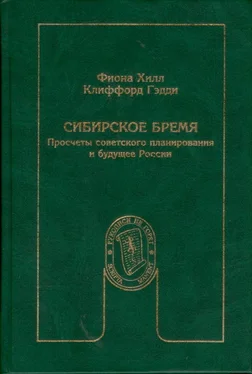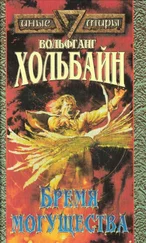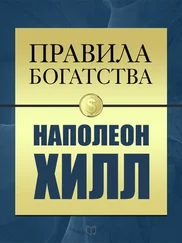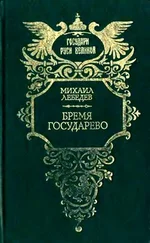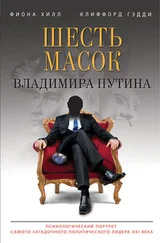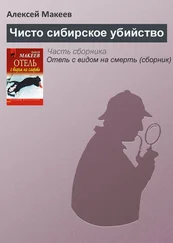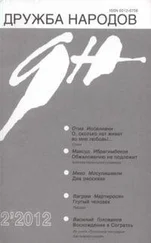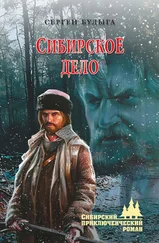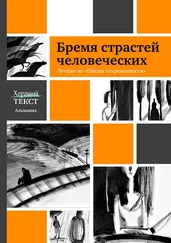Rybczynski, Witold. «Downsizing Cities: To Make Cities Work Better, Make Them Smaller». At/antic Monthly 27’6, no. 4 (October 1995): 36-47.
Sarolea, Charles. Great Russia: Her Achievement and Promise. Alfred Knopf, 1916. Sazonov, Sergei. Fateful Years, 1909-1916. New York: Frederick A. Stokes, 1928. Schmidt, Jeremy. «Russia’s Frozen Inferno». National Geographic 200, no. 2 (August 2001): 56-73.
Sestanovich, Stephen. «Geotherapy: Russia’s Neuroses, and Ours». National Interest 45 (Fall 1996): 3-13.
Sherr, James. Russian Great Power Ideology: Sources and Implications. Sandhurst, England: Conflict Studies Research Center, July 1996.
Shiapentokh, Vladimir. How Russians See Themselves Now: In the Aftermath of the Defeat in Chechnya. Special Adviser for Central and Eastern European Affairs Briefs. Brussels: NATO HQ, 4 December 1996.
—//—. Russia—Privatization and Illegalization of Social and Political Life.
Sandhurst, England: Conflict Studies Research Center, August 1995.
Shoshin, A. A. «Geographical Aspects of Public Health». Soviet Geography, 1964. Simmons, Ernest J., ed. Continuity and Change in Russian and Soviet Thought. Harvard University Press, 1955.
Simsarian, James. «The Acquisition of Legal Title to Terra Nullius». Political Science Quarterly 53, no. 1 (March 1938): 111-28.
Skrine, Francis Henry. The Expansion of Russia. Cambridge University Press, 1915.
Slezkine, Yuri. Arctic Mirrors: Russia and the Small Peoples of the North. Cornell University Press, 1994.
Smith, M. A. Russia’s State Tradition. Sandhurst, England: Conflict Studies Research Center, June 1995.
Snyder, Jack. Myths of Empire: Domestic Politics and International Ambition. Cornell University Press, 1991.
Solnick, Steven. «Gubernatorial Elections in Russia, 1996—1997». Post-Soviet Affairs 14, no. 1 (1998): 48-80.
Solomon, Richard, and Masataka Kosaka, eds. The Soviet Far East Build-Up: Nuclear Dilemmas and Asian Security. Dover, Mass.: Auburn House Publishers, 1986.
Starr, Frederick, ed. The Legacy of History in Russia and the New States of Eurasia. Vol. 1 of The International Politics of Eurasia. Armonk, N.Y.: M. E. Sharpe, 1994.
Statistical Abstract of the United States: 2002. U.S. Census Bureau, 2001. Stoll, Richard J., and Michael D. Ward, eds. Power in World Politics. Boulder, Colo.: Lynne Rienner, 1989.
Stoner-Weiss, Kathryn. «Central Weakness and Provincial Autonomy: Observations on the Devolution Process in Russia». Post-Soviet Affairs 15, no. 1 (1999): 87-106.
Storper, Michael, and Richard Walker. Capitalist Imperative: Territory, Technology and Industrial Growth. New York: Basil Blackwell, 1989. Sumner, B. H. Peter the Great and the Emergence of Russia. New York: Collier Books, 1962.
Swearingen, Roger. Siberia and Soviet Far East: Strategic Dimensions in Multinational Perspective. Hoover Institution Press, Stanford University, 1987.
Szporluk, Roman. Communism and Nationalism: Karl Marx versus Friedrich List. Oxford University Press, 1988.
—//—. «Dilemmas of Russian Nationalism». Problems of Communism (July—August 1989): 15-35.
—//—. ed. National Identity and Ethnicity in Russia and the New States of Eurasia.
Vol. 2 of The International Politics of Eurasia. Armonk, N.Y.: M. E. Sharpe, 1994.
Thomas, Clive S. Alaska Public Policy Issues: Background and Perspectives. Juneau: Denali Press, 1999.
Thornton, Judith. «Institutional and Structural Change in Pacific Russia». Comparative Economic Studies 34, no. 4 (Winter 2001): 1-8.
Tishkov, Valery. Ethnicity, Nationalism and Conflict in and after the Soviet Union: The Mind Aflame. London, Thousand Oaks, and New Delhi: International Peace Research Institute, Oslo, and United Nations Research Institute for Social Development, 1997.
—//—. Nationalities and Conflicting Ethnicity in Post-Communist Russia. Ethnic Conflict Management in the Former Soviet Union Working Paper Series. Cambridge, Mass.: Conflict Management Group, April 1993.
—//—. «What Is Rossia? Prospects for Nation-Building». Security Dialogue 26, no. 1 (March 1995).
Tocqueville, Alexis de. Democracy in America. Translated by George Lawrence and edited by J. P. Mayer. New York: Perennial Classics, 2000.
Treadgold, Donald. The Great Siberian Migration: Government and Peasant in Resettlement from Emancipation to the First World War. Princeton University Press, 1957.
Triesman, Daniel. After the Deluge: Regional Crises and Political Consolidation in Russia. University of Michigan Press, 2000.
Tsipko, Alexander. «A New Russian Identity or Old Russia’s Reintegration?» Security Dialogue 25, no.4 (December 1994): 443-55.
United States Department of Defense. Soviet Military Power: Prospects for Change, 1989. 1989.
Ure, John. The Cossacks. London: Constable, 1999.
Vance, James E., Jr. The Merchant’s World. The Geography of Wholesaling. Prentice-Hall, 1970.
Venturi, Franco. Roots of Revolution: A History of the Populist and Socialist Movements in Nineteenth Century Russia. New York: Grosset & Dunlap, The Universal Library, 1966.
von Schierbrand, Wolf. Russia: Her Strength and Weakness: A Study of the Present Conditions of the Russian Empire, with an Analysis of its Resources and a Forecast of its Future. New York and London: G. P. Putnam’s Sons, The Knickerbocker Press, 1904.
Walicki, Andrzej. A History of Russian Thought from the Enlightenment to Marxism. Stanford University Press, 1979.
—//—. The Slavophile Controversy: History of a Conservative Utopia in Nineteenth Century Russian Thought. Oxford University Press, 1975.
Wegren, Stephen, and A. Cooper Drury. «Patterns of Internal Migration during the Russian Transition». Journal of Communist Studies and Transition Politics 17, no. 4 (December 2001): 15-42.
Weinberg, Robert. Stalin s Forgotten Zion. Birobidzhan and the Making of a Jewish Homeland: An Illustrated History, 1928-1996. University of California Press, 1998.
White, Langdon, and George Primmer. «The Iron and Steel Industry of Duluth: A Study in Locational Maladjustment». Geographical Review 27, no. 1 (1937): 82—91.
White, Stephen, Richard Rose, and Ian McAllister. How Russia Votes. Chatham, N.J.: Chatham House Publishers, 1997.
Whiting, Allen. Siberian Development and East Asia: Threat or Promise? Stanford University Press, 1981.
Wieczynski, Joseph L., ed. The Modern Encyclopedia of Russian and Soviet History. Academic International Press, 1977.
Wingo, Lowdon, and Alan Evans, eds. Public Economics and the Quality of Life. Johns Hopkins University Press, 1977.
Wohlforth, William. «The Perception of Power: Russia in the Pre-1914 Balance». World Politics (April 1987): 353-81.
Wood, Junius B. «Far Eastern Republic of Siberia». National Geographic 41, no. 6 (June 1922): 565-92.
Woodruff, William. The Struggle for World Power, 1500- 1980. St. Martin’s Press, 1981.
World Bank. World Development Report 1996. Oxford University Press, 1996.
Wyckoff, William, and Gary Hausladen. «Settling the Russian Frontier: With Comparisons to North America». Soviet Geography 30, no. 3 (1989): 179—246.
Yavlinsky, Grigory. Reforms from Below: Russia’s Future. Moscow: EPIcenter, Nika Print, 1994.
Yeltsin, Boris. Against the Grain. Summit Books, 1990.
Читать дальше
